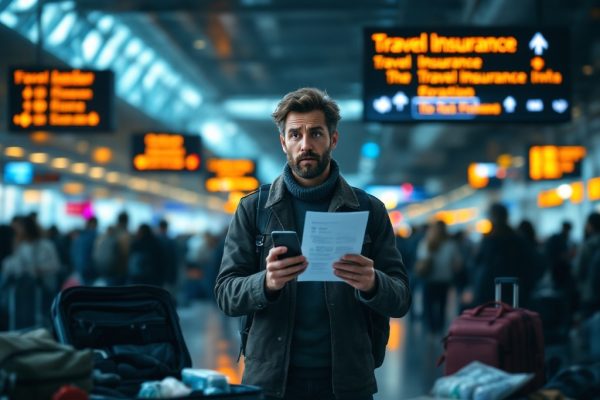Dominican Republic: What Travelers Should Know
Dreaming of pristine beaches and vibrant culture? Discover the Dominican Republic, a Caribbean paradise with year-round sunshine! Explore stunning beaches, savor local cuisine, and delve into captivating history. Visa-free travel is available for many nationalities for up to 30 days, but check the latest entry requirements. Plan your trip between December and early March for ideal weather, remembering to book in advance due to peak season. Learn key safety tips and local customs to ensure a smooth and unforgettable vacation. Unpack your bags and prepare for an unforgettable Dominican adventure – start planning your escape today!
Important information

- The Dominican Republic’s official currency is the Dominican peso (DOP), but US dollars are widely accepted. ATMs are readily available.
- The dry season (December to April) is the best time to visit, with pleasant temperatures. Hurricane season runs from June 1st to November 30th.
- While Spanish is the official language, English is commonly spoken in tourist areas.
- Pack sunscreen, a hat, and sunglasses for sun protection. Drink bottled water and consider necessary vaccinations.
- In emergencies, dial 911. For tourist police, dial *555.
Introduction to Traveling in the Dominican Republic
The Dominican Republic, a Caribbean gem, attracts visitors worldwide with its stunning beaches and lively culture. Bask in the year-round sunshine on pristine sands, or explore the island’s captivating historical sites. Savor the authentic Dominican cuisine for a true taste of the Caribbean.A valid passport is essential for travel. Many nationalities can enjoy visa-free entry for up to 30 days. However, it’s crucial to check the latest entry requirements before your trip to guarantee a smooth and enjoyable vacation.
Climate and Weather in the Dominican Republic
The Dominican Republic boasts a warm, tropical climate, averaging 25°C, with sunshine year-round. The island nation has distinct dry and rainy seasons. The dry season spans from December to April, while the rainy season lasts from May to November.Hurricane season in the Dominican Republic runs from June 1st to November 30th. Travelers should monitor weather forecasts and plan their trips accordingly. For the best weather, visit between December and early March. During these months, temperatures range from a comfortable 25°C to 27°C, offering ideal conditions for exploring the island. However, remember that weather can be unpredictable, so checking the forecast before you travel is always advised.
Sunny Year-Round Destination
The Dominican Republic, a Caribbean escape, basks in year-round sunshine thanks to its tropical location.
Best Time to Visit: December to Early March
Plan your Dominican Republic getaway during the dry season, between December and early March. Enjoy lower humidity and average temperatures ranging from a pleasant 75-85°F (24-29°C), ideal for beach activities and outdoor exploration. Be aware that this desirable weather coincides with peak tourist season, so booking flights and accommodations in advance is highly recommended.
Hurricane Season Precautions
The Dominican Republic’s Atlantic hurricane season runs from June 1st to November 30th. Travelers visiting during this period should closely monitor weather forecasts, as storms can develop quickly and necessitate preparation.
Language and Communication
While Spanish is the official language of the Dominican Republic, English is widely spoken in tourist areas, making travel easier for English speakers.
Official Language: Spanish
While Spanish is the official language, knowing a few basic phrases can significantly improve your travel experience. Although English is common in tourist areas, especially within the hospitality sector, using some Spanish enriches interactions and shows respect for the local culture. Simple greetings like “Hola” (hello) and “Gracias” (thank you) go a long way.
Use of English in Tourist Areas
English is widely spoken in popular tourist areas such as Punta Cana, Puerto Plata, and La Romana, making it easy for visitors to navigate. Hotels, resorts, restaurants, and shops commonly cater to English speakers. However, venturing beyond these tourist hubs and immersing yourself in the local culture requires some Spanish proficiency. Knowing the local language enhances your travel experience and facilitates interactions with locals in less touristy areas.
Money and Currency
Currency
The official currency is the Dominican peso (DOP), but US dollars are widely accepted. Exchange currency at banks, hotels, or exchange bureaus. ATMs are readily available, dispensing Dominican pesos. Credit cards are commonly accepted in tourist areas.
Tipping
Tipping is customary. In restaurants, a 10% tip is standard. For porters, bellhops, and tour guides, a few dollars is a suitable way to show your appreciation.
Currency: The Dominican Peso
The official currency is the Dominican peso (DOP), which often offers a more favorable exchange rate than the US dollar. You can exchange currency at banks, hotels, or exchange offices. While credit cards are widely accepted in larger establishments, cash is recommended for smaller vendors and markets, offering greater flexibility.
Currency Exchange and ATMs
The official currency is the Dominican peso (DOP). ATMs are widely available, providing easy access to local cash. Currency exchange services are also offered at banks and exchange bureaus.
Tipping Practices
Tipping is customary in the Dominican Republic. Restaurant and hotel staff rely on gratuities. Taxi drivers, tour guides, and spa therapists also welcome tips. Consider tipping the following:
- restaurant and hotel staff,
- taxi drivers,
- tour guides, and
- spa therapists.
Packing Essentials for Your Trip
Pack essential sun protection items. These include a high-SPF sunscreen, sunglasses, and a wide-brimmed hat to shield yourself from the strong Caribbean sun.
Ensure your passport is valid for at least six months beyond your return date. Check the specific visa requirements for your nationality to see if you need a tourist visa.
Obtain travel insurance. This will cover unexpected medical expenses, trip cancellations, lost luggage, and other unforeseen issues. Consider a policy that includes medical evacuation coverage.
Sun Protection Tips
Safeguard your skin by using a high-SPF sunscreen, reapplying frequently, especially after swimming or perspiring.
A hat, sunglasses, and protective clothing offer additional defense.
Limit sun exposure, particularly between 10 am and 4 pm when the sun’s rays are most intense.
Travel Documentation Requirements
Traveling to the Dominican Republic requires a valid passport. Many nationalities can enjoy a visa-free stay for up to 30 days. However, always double-check the latest entry requirements before your trip, as they can change. It’s recommended to have proof of onward travel and enough funds to cover your expenses. Upon arrival and departure, remember to complete the required E-Ticket or paper form.
Travel Insurance Importance
Travel insurance protects your finances against losses from trip cancellations, medical emergencies, lost luggage, and other unforeseen events. This protection is especially important when visiting the Dominican Republic, effectively mitigating potential risks.
Health and Safety in the Dominican Republic
Stay healthy on your trip by following these vaccination recommendations: get routine immunizations for measles, mumps, and rubella (MMR), diphtheria-tetanus-pertussis, varicella (chickenpox), and polio. Don’t forget your annual flu shot. Vaccinations for hepatitis A and typhoid are also recommended.For safe hydration, drink bottled water. Avoid tap water to prevent waterborne illnesses.
Medical Care
Medical care is readily available in urban areas, but can be limited in rural locations. In case of emergencies, dial 911.
Safety Tips
Be aware of your surroundings. Avoid displaying valuables like jewelry or electronics. Use hotel safes and don’t walk alone at night. Choose reliable transportation.
Vaccinations and Health Risks
Planning a trip to the Dominican Republic? Discuss recommended vaccinations with your doctor, such as typhoid and hepatitis A, and ensure your routine immunizations are up-to-date. Pack effective mosquito repellent, as the country has mosquito-borne diseases like Zika, dengue, and chikungunya. Be cautious about food and water to avoid illness.
Tap Water Safety
For a healthy trip to the Dominican Republic, skip the tap water. It’s unsafe for tourists, so bottled water is the way to go to prevent illness.
Medical Care and Emergencies
Modern medical facilities are readily available throughout Dominican Republic tourist areas. In case of emergency, dial 911 for immediate assistance.
Common Safety Tips for Travelers
For your safety, be mindful of your surroundings and avoid displaying expensive items like jewelry or electronics. Trust your instincts and steer clear of unsafe locations, sticking to well-lit areas, especially at night. Moderate your alcohol intake.
Engage with locals for valuable safety tips and insights into local customs and traditions. Opt for safe and reliable transportation. In crowds, maintain vigilance and secure your valuables. Avoid isolated areas after dark and utilize your hotel safe for important belongings.
Research your accommodations and local customs before you go. Pre-plan your routes, and consider a guided tour for an extra layer of security. Establish a check-in schedule with family or friends to keep them informed of your travels.
Local Laws and Customs
A smooth Dominican Republic trip hinges on respecting local laws and customs. Understanding regulations, like those concerning drug use, public intoxication, and appropriate attire, is crucial. Respectful behavior, honoring local customs and traditions, ensures a positive experience for all. Here’s what you need to know:
Respecting Local Laws
Familiarize yourself with Dominican Republic laws regarding drug use, public intoxication, and appropriate attire in public spaces. Penalties for violating these laws can be severe, impacting your trip significantly.
Honoring Local Customs
Embrace the local culture by respecting customs and traditions. Engage with locals politely and be mindful of cultural norms. This creates a positive experience for both you and the Dominican community.
Understanding Local Laws
Familiarize yourself with Dominican Republic laws, including those concerning gambling and public intoxication. Understanding and respecting these regulations, as well as local customs and traditions, will contribute to a positive travel experience.
Transportation and Getting Around
Traveling within the Dominican Republic offers diverse transportation options. The Santo Domingo Metro provides efficient subway service within the city. Public buses connect cities and towns nationwide. For shorter distances, particularly in urban areas, “guaguas,” or shared taxis, are a practical choice.
Public Transportation Options
Public transportation in the Dominican Republic offers budget-friendly travel options, primarily buses (locally known as “carros públicos”) and shared taxis. For shorter trips, shared taxis provide a more comfortable option with increased personal space, while buses offer the most economical choice, though they may be crowded.
Road Conditions and Safety
Driving in the Dominican Republic requires vigilance due to unpredictable road conditions. Potholes and rough terrain are common, especially outside major cities. Dim lighting further increases these hazards. Exercise caution and observe local traffic laws, respecting posted speed limits. The prevalence of motorcycles adds another layer of complexity, so stay alert. For unfamiliar drivers, hiring a driver from a reputable agency or using a reliable taxi service significantly improves safety.
Telecommunications and Connectivity
Staying connected in the Dominican Republic is easy. Wi-Fi is widely available in hotels, resorts, and popular tourist areas, as well as in many cafés and restaurants. For mobile internet access, purchase a local SIM card from providers like Claro, Altice, or Viva for convenient connectivity on the go.
Wi-Fi and SIM Card Options
Cafés and restaurants often provide Wi-Fi for easy internet access. Alternatively, a local SIM card offers convenient connectivity.
Emergency Contacts and Assistance
In emergencies, dial 911 for immediate assistance (police, fire, ambulance).
For tourist police specifically, dial *555 to reach CESTUR (Specialized Tourist Security Corps) patrolling tourist areas.
The U.S. Embassy in Santo Domingo offers assistance with lost passports, emergencies, and other consular services. Consular agencies are also available in Puerto Plata and Punta Cana.
Emergency Services and Tourist Police
In emergencies, dial 911. Tourist police are available to assist visitors in tourist areas.
U.S. Embassy and Consular Agencies
The U.S. Embassy is located in Santo Domingo, with Consular Agencies in Puerto Plata and Punta Cana. These agencies assist U.S. citizens with services such as passport support and emergency assistance.
Adventure and Leisure Activities
Swimming is a favorite pastime in the Dominican Republic, but be mindful of rip currents, which can be dangerous at many beaches. Exercise caution when entering the water. Adventure tourism thrives here, with exciting options like zip-lining. Selecting a reputable tour operator with strict safety standards is crucial for a safe and enjoyable experience. Always heed your guide’s instructions. Here’s a guide to staying safe:
Water Safety
Be cautious of rip currents at beaches. Exercise caution when entering the water.
Adventure Tourism
Choose a reputable tour operator with strict safety standards for activities like zip-lining. Always follow your guide’s instructions.
Beach and Water Safety
Swim only in designated areas for your safety.
Rip currents and shifting tides can be hazardous. Heed posted warnings.
Always swim with a buddy.
Avoid excessive alcohol consumption before entering the water.
Adventure Tourism Precautions
Seeking adventure through kayaking, scuba diving, or extreme sports promises an incredible rush, but prioritizing safety is key to a truly rewarding experience. Always adhere to provided safety guidelines and select reputable tour operators. Researching local conditions and identifying potential hazards beforehand is crucial. Above all, trust your gut. If a situation feels risky, it’s best avoided. Unnecessary risks jeopardize your safety. Here’s how to prioritize safety during your adventures:
Choose reputable operators. Selecting certified instructors and guides ensures adherence to safety protocols.
Understand local conditions. Researching weather patterns, currents, and potential hazards specific to your location is crucial for informed decision-making.
Follow safety guidelines. Always adhere to provided safety instructions and regulations, including equipment usage and emergency procedures.
Trust your instincts. If a situation feels unsafe or beyond your comfort level, it’s crucial to trust your judgment and avoid unnecessary risks.


















